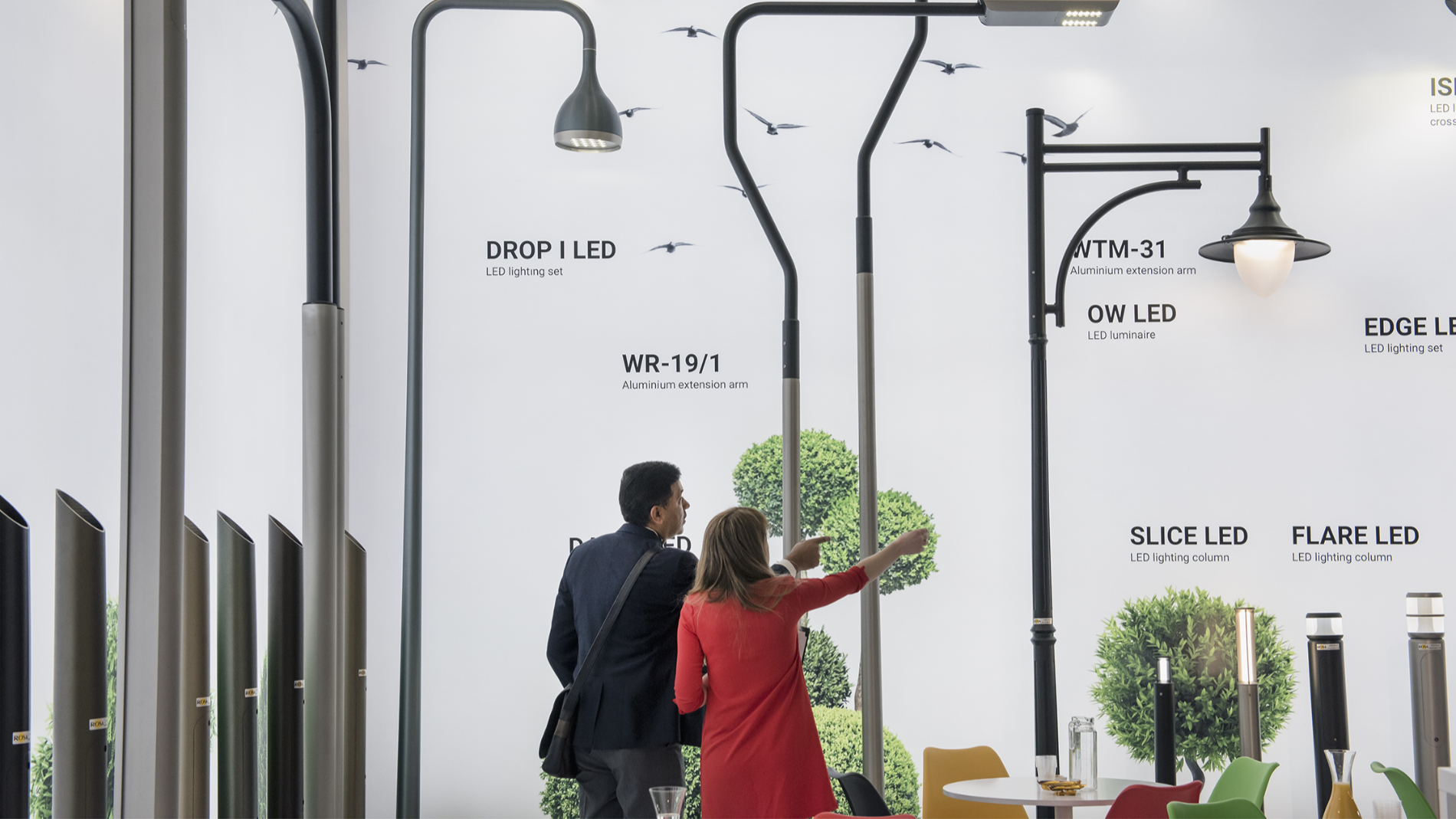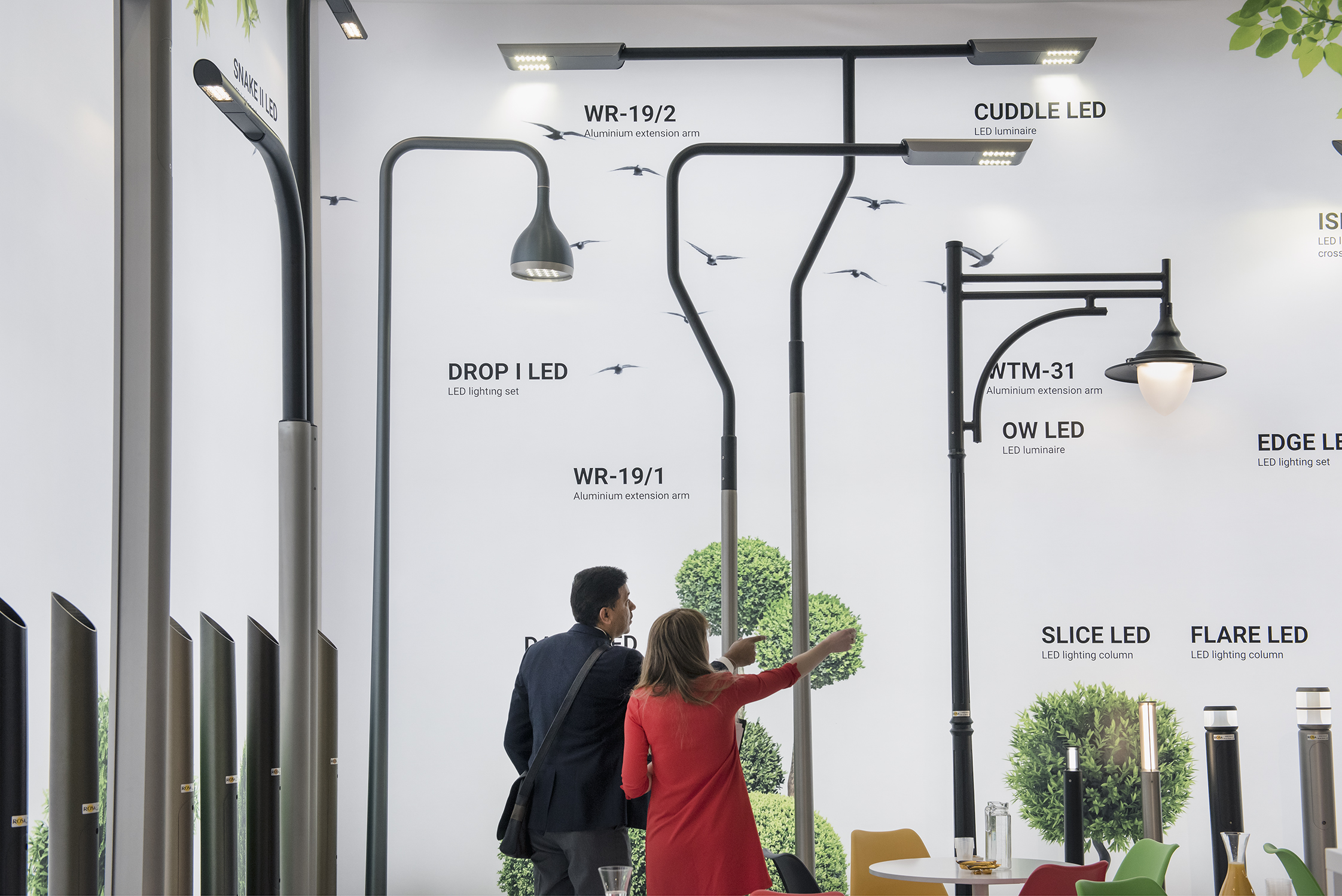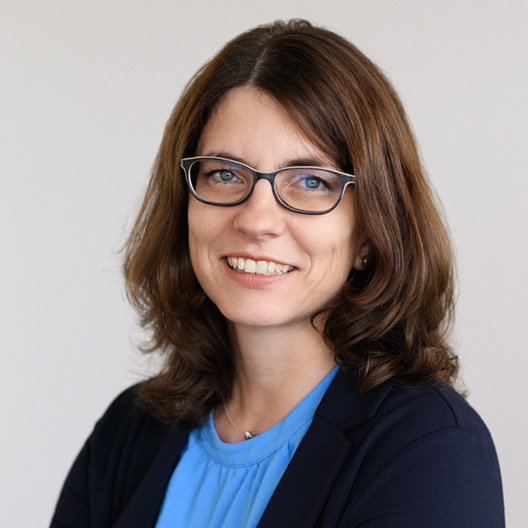Representatives from cities and municipalities, architects, landscape and urban planners: all those who make decisions regarding modern lighting concepts will find valuable, up-to-date specialist information and competent partners for this complex task at the leading international trade fair for lighting and building services technology. After the pandemic-related break, this year's Autumn Edition of Light + Building provides the long-awaited overview of the latest technology and design trends. Because manufacturers, as well as engineers and designers, have been anything but idle over the last four years - and will present a multitude of innovations in October.
These innovations also include products and concepts that advance the development of lighting technology for the intelligent city: The idea of the Smart City is based on integrated technology systems that make a city safer through extensive digitalisation and connectivity of lighting systems by means of individually remote-controllable lighting scenarios. And this is coordinated with the local situation and time of day. In addition to street lighting - with high visual comfort - this also includes non-invasive video surveillance, for example in parks, pedestrian zones and car parks.
The integration of video surveillance systems into modular, smart light pedestals is formally simple - and equips the outdoor luminaires with a valuable, security-relevant additional benefit. Brightness levels and light temperatures can be controlled according to the time of day and season, so that in combination with LEDs they provide good illumination. In some models, the intervals can also be adjusted by sensors so that they react flexibly to the volume of traffic.

The increasingly important topic of sustainability touches on several aspects in the area of urban luminaires: in addition to the use of energy-saving LED components, the self-sufficiency of a luminaire through solar panels offers many advantages. The installation site can be chosen flexibly - there is no need for earthworks or cable laying. Some models equipped with photovoltaic panels can already store electricity for ten days. Such panels are sometimes designed like a protective roof over the luminaire, sometimes they also use the pole itself as a surface to generate electricity. Many manufacturers already produce fully recyclable luminaires according to the principles of the circular economy. For example, anodised aluminium poles can be 100 percent converted into new products even after decades of use.
In Smart City concepts, the aspect of safety therefore has a prominent role: here, it is not just about "appearances", but about health and integrity. And about safety concepts in which sustainability, form and function become a unity.
The manufacturers' ranges include a large number of formally and technically diverse products: from cast-iron, historicising luminaires that atmospherically illuminate an old town alley - to clear, purist solutions that fit seamlessly into a modern architectural image. Smart light is thus becoming a decisive component for increasing safety in cities. With the multitude of different spatial scenarios in metropolises as well as in small towns, it is therefore of great importance to develop precisely coordinated concepts that fit the respective structural environment and local conditions.
There is much to discover as well as inspiring exhibitions and lectures at Light + Building Autumn Edition from 2 to 6 October 2022. Parallel to this, the Intersec Forum opens from 3 to 6 October 2022.
The Light + Building Digital Extension is open from 2 to 14 October 2022.
Press information and photographic material:
Social media:
www.light-building.com/facebook
www.light-building.com/twitter
www.light-building.com/youtube
Background information on Messe Frankfurt
The Messe Frankfurt Group is one of the world’s leading trade fair, congress and event organisers with their own exhibition grounds. With a workforce of 2,200 people at its headquarters in Frankfurt am Main and in 28 subsidiaries, it organises events around the world. As in the previous year, annual sales for 2021 were significantly lower owing to the COVID-19 pandemic: approximately €154 million compared with Group sales as high as €736 million in pre-pandemic 2019. We serve our customers’ business interests efficiently within the framework of our Fairs & Events, Locations and Services business fields. Sustainable business practices are a central pillar in our corporate strategy and strike a healthy balance between ecological and economic interests, social responsibility and diversity. Another of Messe Frankfurt’s strengths is its powerful and closely knit global sales network, which covers around 180 countries in all regions of the world. Our comprehensive range of services – both onsite and online – ensures that customers worldwide enjoy consistently high quality and flexibility when planning, organising and running their events. We are using our digital expertise to develop new business models. The wide range of services includes renting exhibition grounds, trade fair construction and marketing, personnel and food services.
With its headquarters in Frankfurt am Main, the company is owned by the City of Frankfurt (60 percent) and the State of Hesse (40 percent).
For more information, please visit our website at: www.messefrankfurt.com
Downloads

